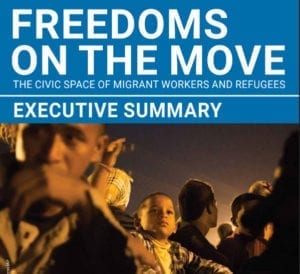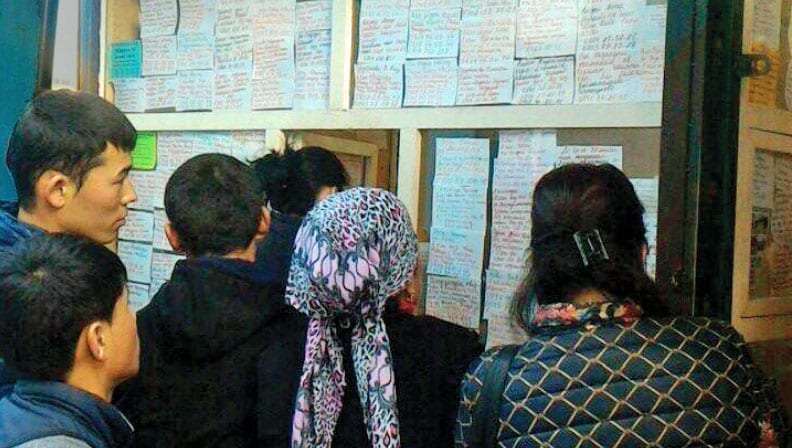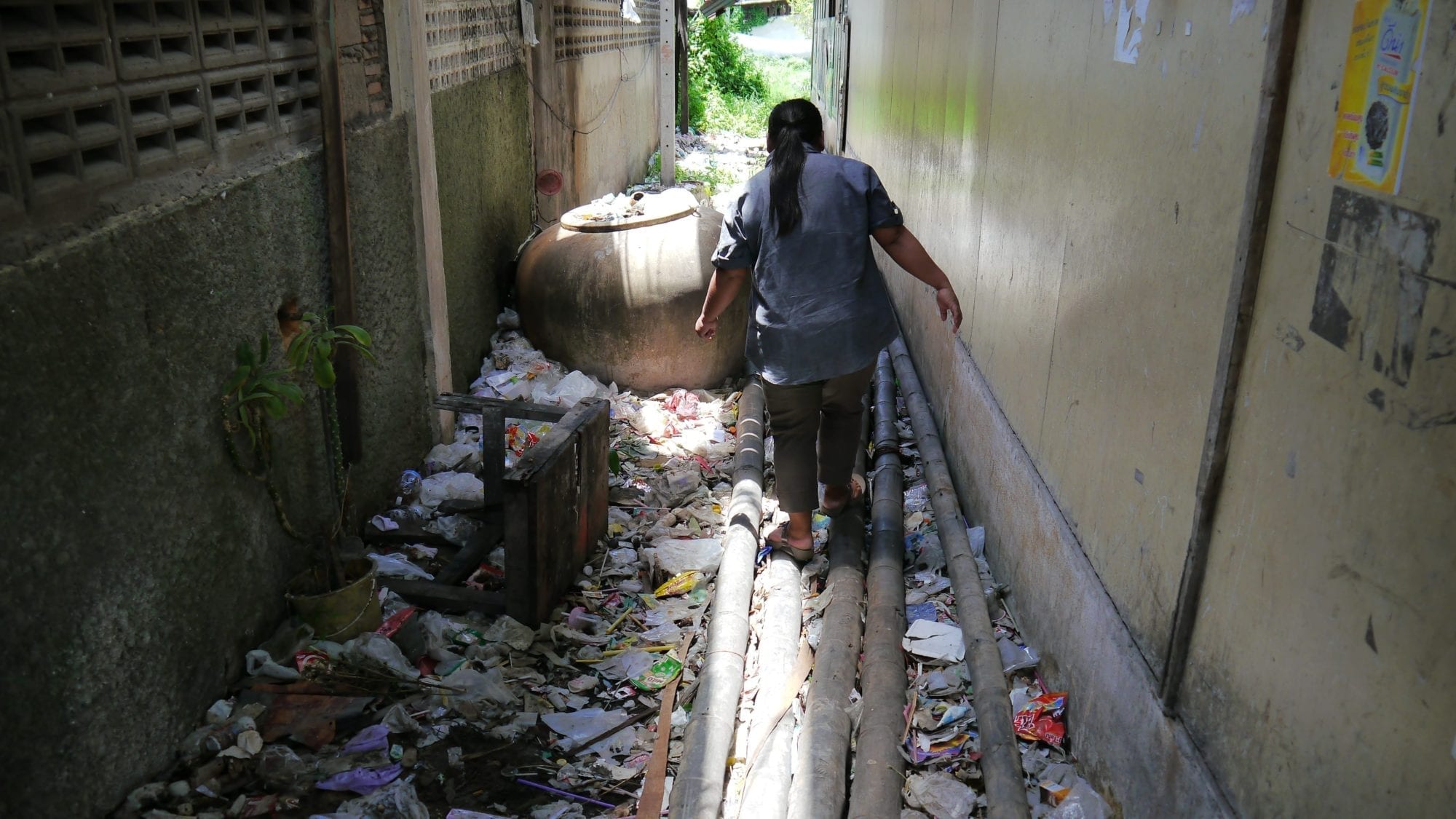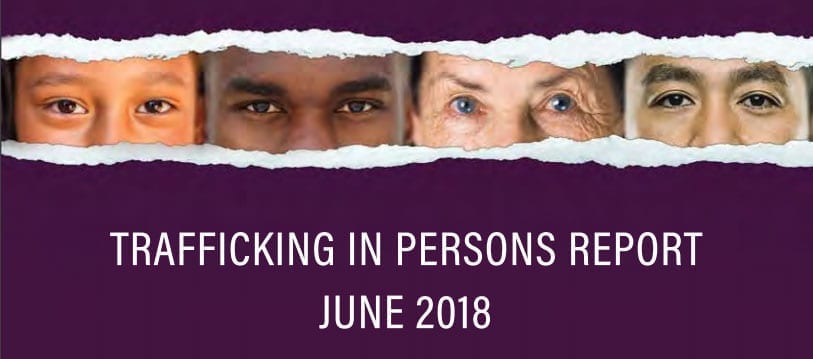Workers who migrate from Kyrgyzstan to Kazakhstan for jobs often do not receive their wages, are forced to work in unsafe and abusive conditions and even are kidnapped and held against their will in forced labor, according to a new report. “Invisible and Exploited in...
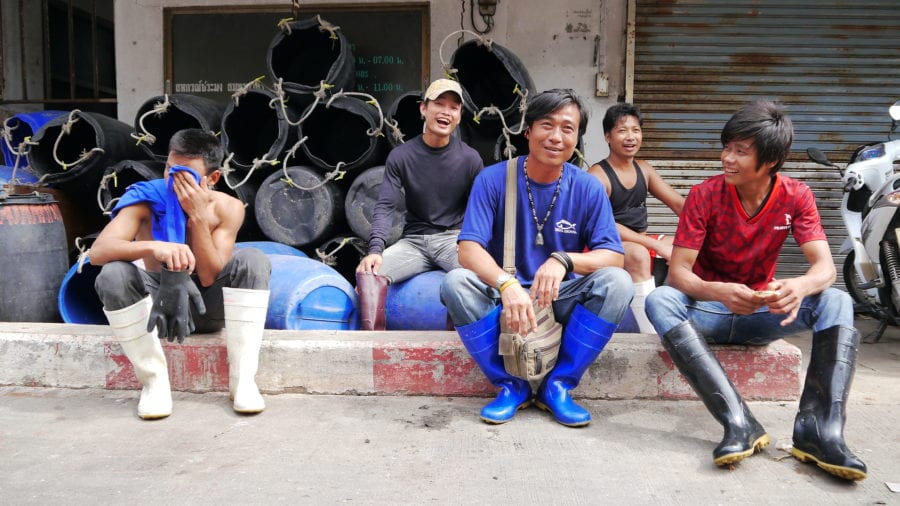
The Solidarity Center strives for rights for people on the move by ensuring migrant workers are fully able to exercise their workplace, social, economic and democratic rights. Solidarity Center/Jeanne Hallacy
Labor migration feeds the global economy. Hundreds of millions of migrant workers worldwide generate billions of dollars in global remittances. They are domestic workers, construction and agricultural workers, factory and service workers, teachers and professionals. Migrant workers often travel long distances due to a lack of decent work at home to support their families and build a better life. They frequently are denied the most basic human rights. For instance, most destination countries deny migrant workers the right to form unions, and explicitly exclude them from labor law protections, and women migrant workers are often subject to gender-based violence and harassment in their workplaces.
The Solidarity Center strives for worker rights for people on the move by ensuring migrant worker rights are a key part of the labor movement. We cultivate an understanding of how exploitative labor migration management schemes are a widespread means by which to undercut worker wages, create precarious work and pit workers against each other. And, in addressing these structural ills, we emphasize a response that understands the intersectionalities and identities that make migrant workers especially vulnerable. Our goal is to ensure that migrant workers are fully able to exercise their workplace rights, as well as their social, economic and democratic rights.
We also focus on the creation of decent work in home countries so workers can migrate by choice and not due to economic coercion. We recognize that migration is not caused by a single factor that “pushes” workers to migrate. In doing so, we bring our unique worker rights voice more broadly by emphasizing that everyone deserves dignity at work regardless of status—climate migrants, economic migrants and conflict refugees. We work to achieve this through programs that focus on union organizing and collective bargaining, policy advocacy, access to justice, safe migration and, more broadly, the ability to exercise fundamental freedoms as democratic participants.
Find out more
- A Pandemic Reset for Migrant Workers, Neha Misra and Shannon Lederer
- How COVID-19 Affects Women in Migration, Carolina Gottardo and Paola Cyment
Freedoms on the Move, a 2019 report by Solidarity Center and CIVICUS, is an urgent call to action for unions and other civil society groups to include migrant workers and refugees in advancing civic rights.
Migrant Workers in Thailand Win Justice for Abuse at Work
Worker rights advocates are hailing a recent court decision in Thailand that dismissed criminal defamation charges against 14 migrant workers from Myanmar who faced jail time after reporting abusive working conditions on a poultry farm. Fourteen workers who left the...
Myanmar, Turkmenistan Failing U.S. Trafficking Standards
Myanmar (Burma) and Turkmenistan do not meet minimum standards to address human trafficking and are making no attempts to do so, according to the 2018 U.S. State Department’s 2018 Trafficking in Persons Report released today. The report, which ranks countries based on...
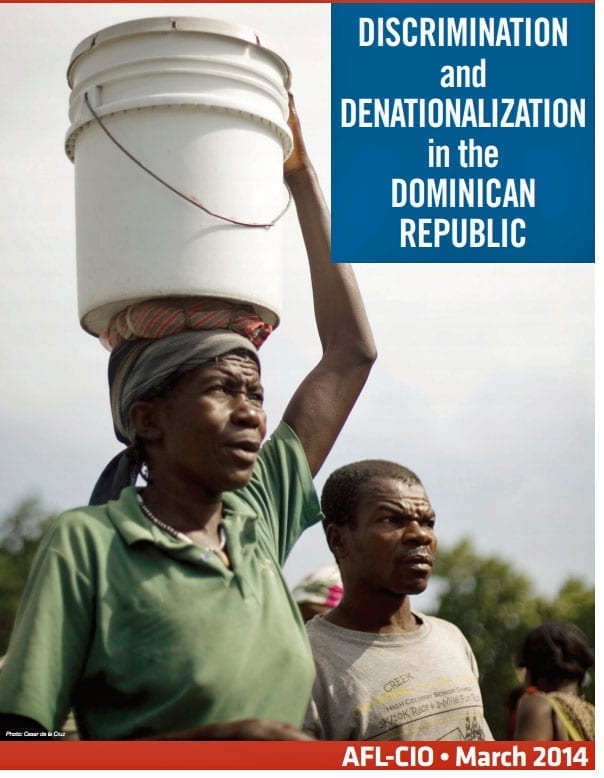
Discrimination and Denationalization in the Dominican Republic
A September 2013 Dominican court ruling taking away citizenship from many migrants means they will be excluded from any activity that requires official identification, including working in the formal sector, attending school, opening a bank account, accessing health...
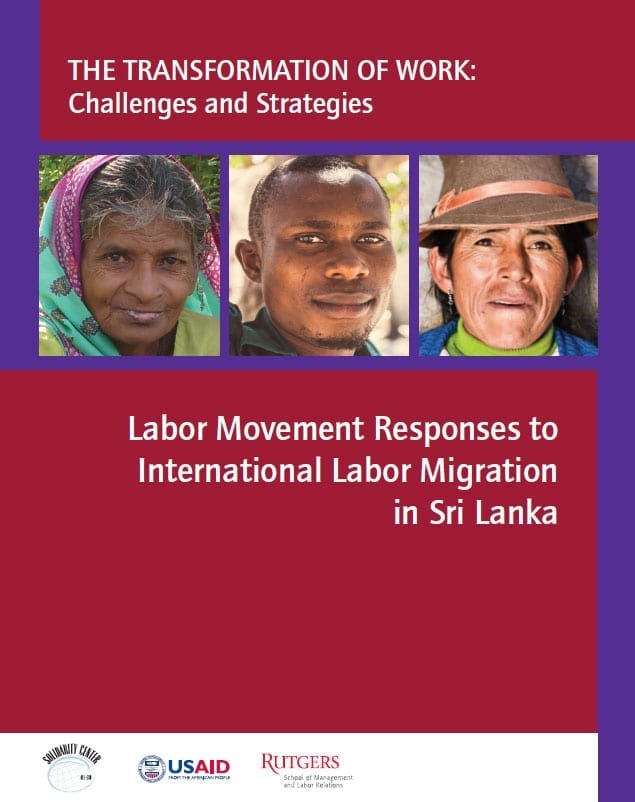
Labor Movement Responses to International Labor Migration in Sri Lanka
This report looks at the political and economic context within which Sri Lankan unions have attempted to respond to migrant workers, unions' role in the key governance and policy mechanisms that pertain to labor migration, and the way the Sri Lankan labor movement...
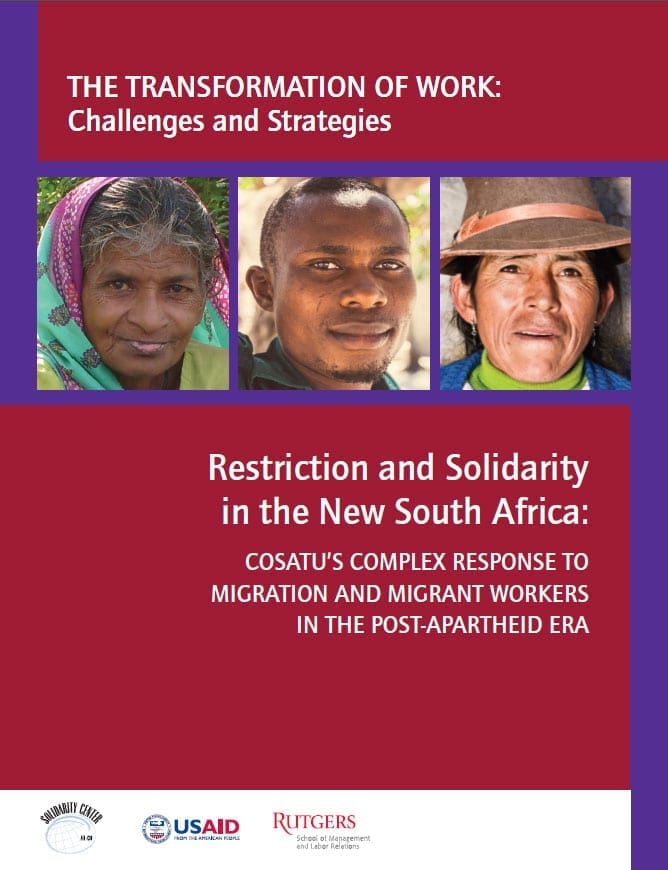
Restriction and Solidarity in the New South Africa
This report look at South African labor’s complicated engagement with migrant workers by examining the migration policy debate, labor’s response to the xenophobic attacks of 2008 and two organizing campaign in the agricultural sector. It sheds light on how labor...
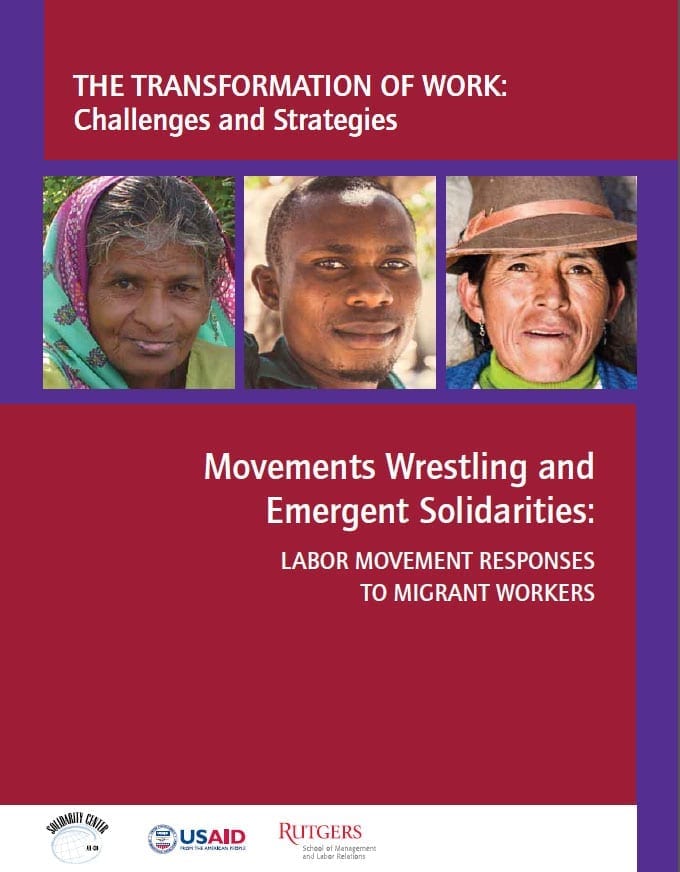
Movements Wrestling and Emergent Solidarities: Labor Movement Responses to Migrant Workers
This report synthesizes a two-year project. Part one consisted of desk and case study research conducted by telephone in Jordan and the Dominican Republic looking into cases where unions had made significant changes in their approach to migrant worker organizing. Part...
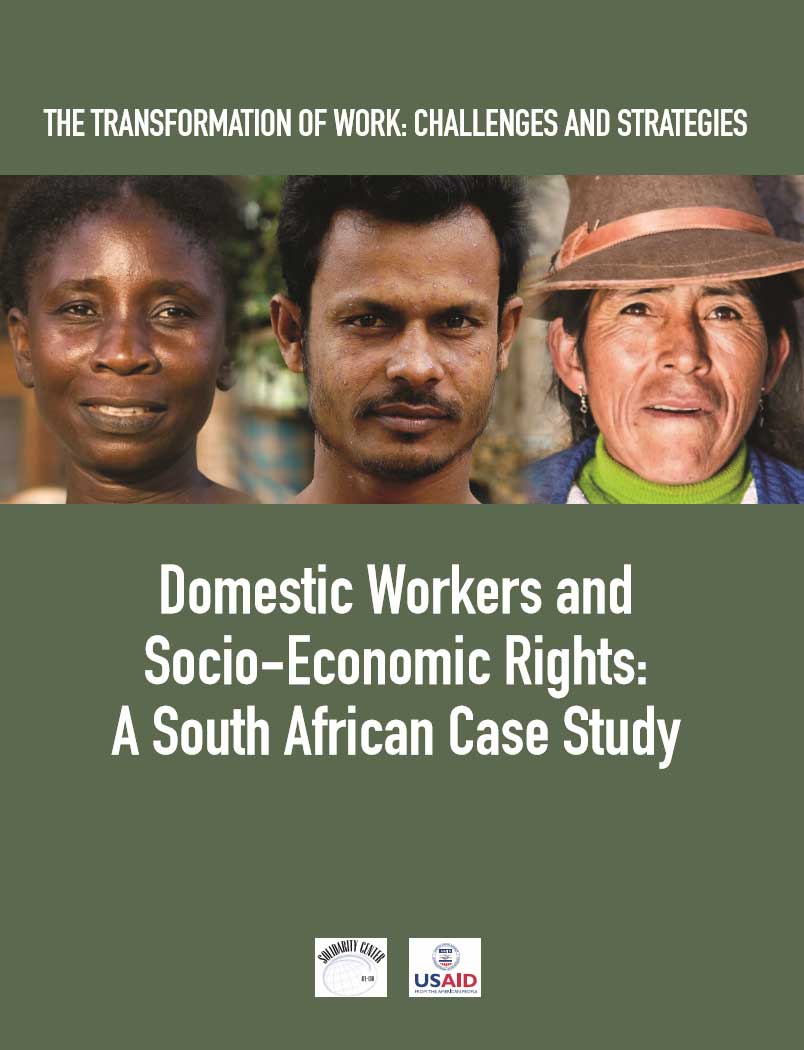
Domestic Workers and Socioeconomic Rights: A South African Case Study (2013)
This report explores the challenges of empowering domestic workers in South Africa through the traditional trade union focus on worker rights, democratic voice and collective action. This Solidarity Center report is part of a multiyear research project, funded by the...
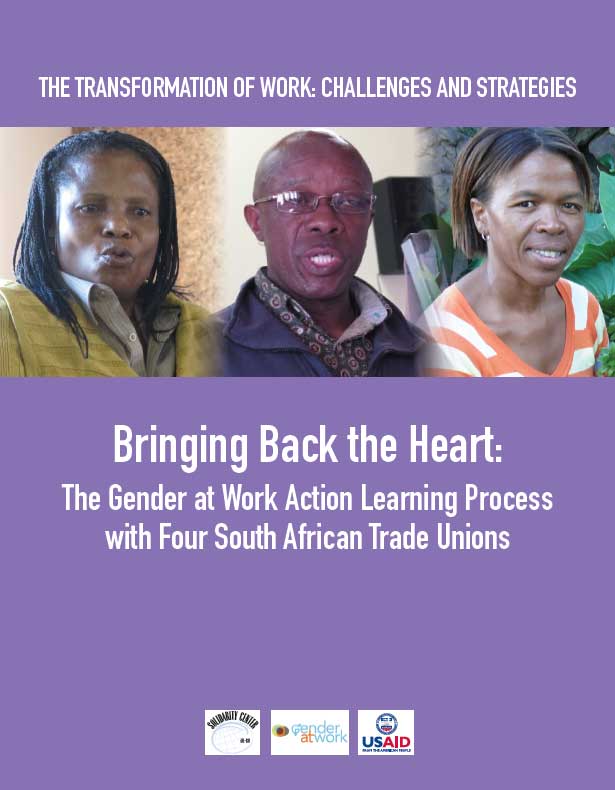
Bringing Back the Heart: The Gender at Work Action Learning Process with Four South African Unions (2013)
Four South African unions took part in a unique process with the South Africa Gender Action Learning Program and Labour Research Service to challenge male–dominated, hierarchical cultures. This report describes the step-by-step journey that led to more women joining...

